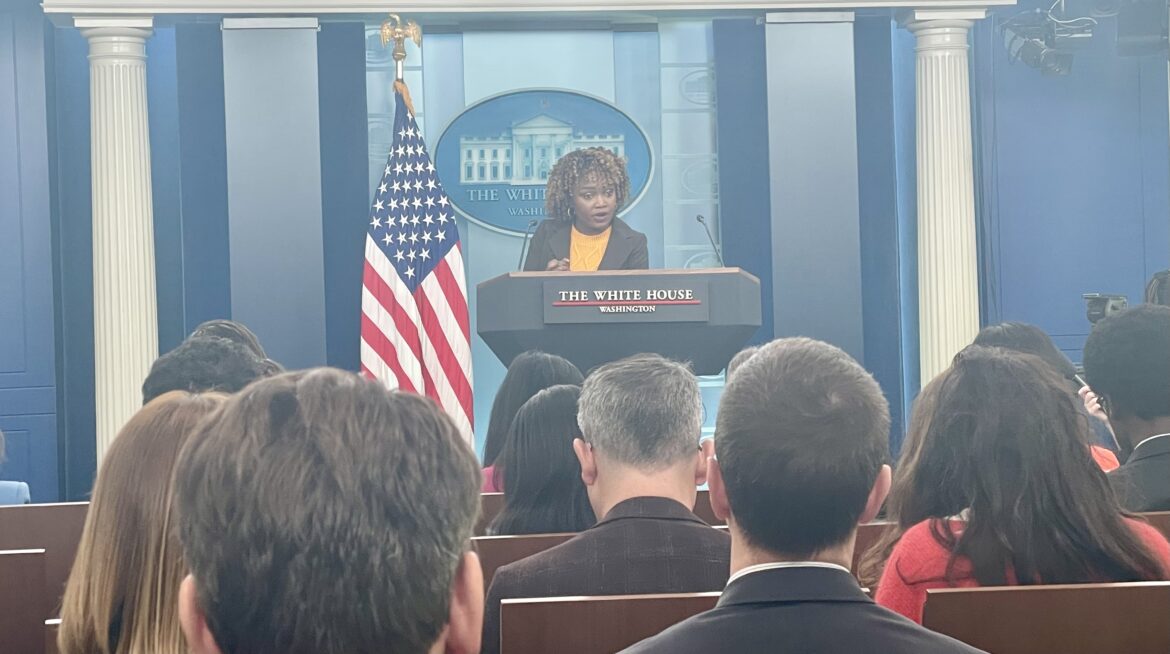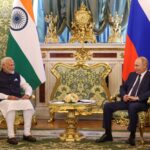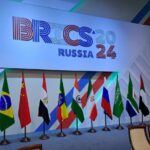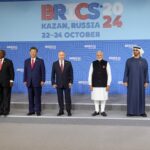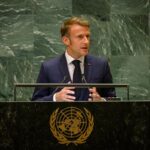As leaders of the BRICS (Brazil, Russia, India, China, and South Africa) alliance gather in Kazan, Russia, from October 22-23, for the 16th BRICS Summit under the Chairmanship of Russia, the White House emphasized that the United States does not view the alliance as a “geopolitical rival.”
During the White House press briefing, on October 21, 2024, Press Secretary Karine Jean-Pierre, highlighted that the U.S. will continue working with Brazil, India, and South Africa and even with China, to navigate and manage the relationships effectively.
She noted that the United States is “working with partners around the world to build and broadcast the deepest coalitions possible to help achieve” its shared goals, while emphasizing “That’s what we’re going to be focused on… we’re not looking at BRICS as evolving into some kind of geopolitical rival.”
On October 18th, Russia’s President Vladimir Putin, while responding to questions from journalists from BRICS nations at Novo-Ogaryovo, in Moscow Region, differentiated BRICS from other international organizations. “BRICS was never meant to be created in opposition to anyone. The Prime Minister of India put it best. He said BRICS is not an anti-Western alliance; it is simply non-Western. This distinction is very important and has great meaning. That is, BRICS does not set itself in opposition to anyone,” he expressed.
President Putin underscored that economic powerhouses like China and India are expected to see positive growth, alongside Russia and Saudi Arabia. However, countries in Southeast Asia and Africa are anticipated to experience even faster growth, driven by several key factors.
Referring to China, India, Brazil, and South Africa, he noted that their increasing economic strength will naturally translate into greater global influence, calling it an “an undeniable fact.”
About India’s mediation efforts to end the Russia-Ukraine war, President Putin said, “Yes, I know that during each telephone conversation with me, he [PM Modi] raises this issue and offers his insights about it. I am grateful to him for that and welcome it.”
India’s Foreign Ministry has announced that Prime Minister Modi will attend the BRICS Summit, which is centered around the theme “Strengthening Multilateralism for Just Global Development and Security.” The Summit will serve as a significant platform for global leaders to discuss critical international issues and explore opportunities for future collaboration. On the sidelines of the Summit, PM Modi will also hold bilateral meetings with leaders from BRICS member countries and invited dignitaries.
President Putin further acknowledged that BRICS represents 45 percent of the world’s population, covers 33 percent of the Earth’s landmass, and continues to expand its influence in trade and global commerce. Recently, approximately 30 countries have shown interest in collaborating with BRICS or participating in its activities.
“This is a clear and visible impact of our recent expansion,” he added. “The decision to accept new countries was no coincidence. These are countries and people we know well, with whom we have collaborated in various fields over a long period. Now that we are working together within a single group, we have created platforms for exchanging ideas and exploring potential joint projects across a range of sectors.
President Putin also raised that Indian films are exceptionally popular in Russia, more so than in any other BRICS country. He noted that a special TV channel broadcasts Indian films around the clock, emphasizing Russia’s strong interest in Indian cinema.
“I can say that this product is in high demand on the market in the broad sense of the word, at least in Russia. I think it will be a good business, like Indian pharmaceuticals. I will be ready to discuss this with our friend, Prime Minister of India [Narendra Modi],” on the sidelines of the Summit. He mentioned that if PM Modi addresses the issue, they could likely find common ground, and he foresees no challenges.
Regarding Russia’s proposal of alternative international payment platform, Putin clarified that Russia did not voluntarily stop using the US dollar but was denied access to it. Currently, 95 per cent of Russia’s foreign trade with partners is conducted in national currencies.
“You see, they did it themselves. So be it. They thought everything would collapse. No, it did not. Trade is developing on a new foundation,” he added. “We would like to propose some really serious things to our colleagues – I will not go into details at this point. There is a serious issue of using digital currencies in investment processes, and not only in BRICS countries but by BRICS countries in the interests of other developing economies which have good development prospects.”


